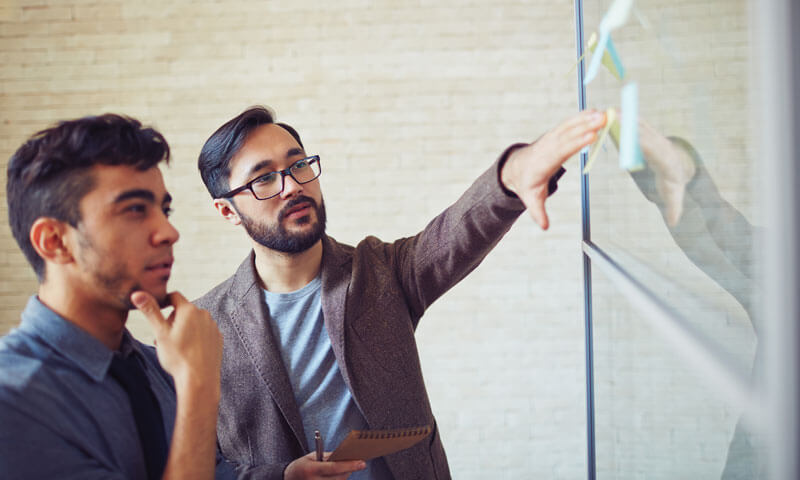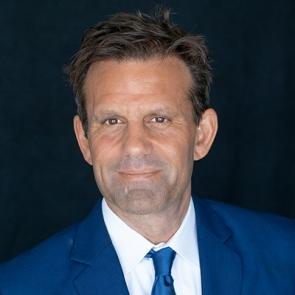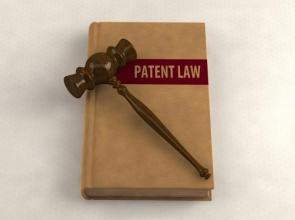
Examples of intellectual property are music, books, movies, artwork, product names, logos, slogans and packaging, inventions that qualify for patent protection, and information that is kept secret and not commonly known.
When people think of IP lawyers, they usually think of patent attorneys, which is no surprise given that a good majority of IP lawyers are patent attorneys. Patent attorneys, however, are not the only types of IP attorneys. Under the umbrella of IP lawyers also fall trademark, copyright, trade secret, and Internet/e-commerce attorneys.
Significantly, where property such as machines may have once been the primary source of a company’s worth, in today’s economy much of a company’s worth comes from the ownership of intellectual property. In general, there are five basic types of intellectual property work that attorneys do.These areas are: a) Patent, b) Trademark, c) Copyright, d) Trade Secret, and e) Licensing.
- PATENT LAW. Patent law protects inventions. By filing and obtaining a patent from the United States Patent and Trademark Office, the inventor of a product receives a monopoly on the commercial exploitation and use of a product for up to 20 years. Patents can protect the functional features of a process, machine, manufactured item, asexually reproduced plant, or composition of matter, for example. For attorneys pursuing the patent track, this comprehensive patent attorney career guide for 2025 highlights opportunities and growth.
- TRADEMARK LAW. Trademark law protects words, phrases, logos or symbols used to distinguish one product from another. In circumstances where a competitor uses a protected trademark, the holder of the trademark can go to court and obtain an injunction to stop the use.
- COPYRIGHT LAW. Copyright law protects the creators of expressive works, such as artists, photographers, writers, and musicians, and gives them the exclusive right to protect how their works are used. It is important to note that, unlike trademark law, copyright law does not protect names or titles. One way that copyright law can be distinguished from trademark law is in the advertising context. Trademark law would commonly protect the name of the product being advertised, while copyright law would protect the expression. For example, the statement in an advertisement: "If you drive this X car, you will undoubtedly realize it is among the best in the market for what it does," is an example of something that would have elements of copyright and trademark within it.
- TRADE SECRET LAW. A trade secret is “A secret formula, method, or device that gives one an advantage over competitors.” If the owner of the trade secret takes reasonable steps to keep the trade secret “secret,” courts will protect the trade secret owner from unauthorized disclosure by (1) industrial spies, (2) competitors who wrongfully acquire the trade secret, (3) employees of the owner of the trade secret, and (4) anyone with any type of duty not to disclose the information.
- LICENSING LAW. While licensing law may make use of all the areas of law above, it is a popular-enough type of work that it merits some discussion. A license is a grant of permission to do something with an otherwise protected work or product. Copyright holders, for example, can give permission to other individuals to copy their work, or a trademark owner can grant a license to another to use the trademark.
PATENT ATTORNEYS–WHY ARE THEY IN SUCH DEMAND?
Without a doubt, the largest demand for intellectual property attorneys is for those who can do patent work. Approximately 85% of the intellectual property placements we make are for patent attorneys. Reviewing the listings on our website, one finds there are more openings for patent attorneys than for many other practice areas combined. So the question is, why is the demand so high?
First, patent attorneys are rare. Over the past five years, the percentage of practicing patent attorneys simply has not increased as a percentage of all the attorneys practicing in the United States.The percentage of practicing patent attorneys compared with the total attorney population has consistently remained at approximately 11/2 percent.There are only approximately 20,000 patent attorneys in the United States, while there are approximately 1,000,000 other attorneys.
Second, to become a patent attorney, it is not enough to take the bar exam of a given state. In addition, an attorney must also take the United States Patent and Trademark Office’s Patent Bar Exam.
Third, to even sit for the Patent Bar, an applicant needs prior scientific or technical-level training at the bachelor's-degree level in a science or engineering field (or significant college credits in one of these fields).While there are certainly many people who graduate each year with technical and science degrees, very few of these people may have any interest in attending law school (and accumulating high levels of debt) because the market for these individuals is extremely good even without a law degree. Over the past several years, the demand for people to do research and development has grown rapidly, and many of these people can easily get super jobs without ever attending law school.Virtually every person who operates a computerdependent business knows how difficult it is to find computer programmers, for example. In the biotechnology arena, there is also a high number of positions that consistently go unfilled.
Fourth, assuming the potential patent attorney even has the requisite training to qualify to take the Patent Bar, he/she must also pass it, and the pass rate for the patent bar exam is much lower than for most bar exams; it typically ranges from 28% to 40%.
Fifth, the demand for patent attorneys is compounded by the fact that the need for patents has continually increased dramatically. For example, a recent article in the Legal Times stated that the number of patents issued each year has increased 30-40 percent since 1990. During the same period of time, the number of software patents increased by approximately 200 percent.
Sixth, it is also important to note that attorneys with technical expertise in certain fields are far more likely to obtain employment as patent attorneys than other types of patent attorneys.This fact, in turn, makes the pool of potential candidates for patent positions even smaller.While there are certainly differences that could be pointed out, for the most part the expertise of patent attorneys falls into the following categories: (1) the life sciences, (2) chemistry & pharmaceutical, (3) material science, (4) electrical engineering, (5) physics, (6) mechanical engineering, (7) medical devices, and (8) computer science. In terms of demand, the greatest demand is for attorneys with backgrounds in electrical engineering or computer science (more than 90% of our clients seeking patent attorneys are looking for those with an electrical engineering or computer science background). There is also a strong demand for attorneys with biotechnology, biochemistry, or organic chemistry backgrounds. The lesser demand is for those with mechanical or chemical backgrounds.
WHY ARE PATENT ATTORNEYS SO DIFFICULT TO RECRUIT?
Recruiting patent attorneys is unique. Patent attorneys, in general, are a bit more risk averse than most other attorneys. Also, patent attorneys are aware that they are very in-demand and that they are in a “buyer’s market.”Thus, they can afford to be very choosy about opportunities. Furthermore, because patent attorneys are scientists and very used to analytical and detailed thinking, they will rarely make a move unless they have thoroughly investigated and weighed all the variables of their various options in what could seem to be excruciating detail.
PATENT AGENTS–WHAT ARE THEY?
Patent agents are not attorneys, but they can perform limited functions before the USPTO without a law degree (assuming that the person has the proper science/technological degree and passes the Patent Bar). Many firms like to hire patent agents because they can perform patent prosecution at a much cheaper billing rate than a regular patent attorney, which some clients appreciate.
WHAT IS THE DIFFERENCE BETWEEN PATENT PROSECUTION AND PATENT LITIGATION?
Simply stated, patent prosecutors deal with filing and registering patents ith the USPTO. The term “patent prosecution” also typically encompasses patent counseling (e.g., writing opinions regarding whether a certain invention is patentable).
Patent litigation is more akin to general litigation, but the parties are litigating issues relating to certain patents. Unlike patent prosecutors, patent litigators do not need to have a science background. However, having the science background is very helpful in terms of understanding the technology, which is often highly complex.
Typically, patent litigation is more lucrative than patent prosecution because patents are so valuable and the stakes are so high. For example, if a company loses a patent, it can lose millions upon millions of dollars.Thus, the big picture is important in patent litigation, and clients are much more willing to spend $1-to-10 million on legal fees if it means saving $10-to-100 million in the long run.
WHAT ABOUT TRADEMARK, COPYRIGHT, LICENSING,TRADE DRESS (“SOFT IP”) ATTORNEYS?
The opportunities for trademark/copyright and other “soft IP” attorneys are fewer and far between.There are several reasons why.
First, the trademark, copyright, and licensing fields are not nearly as complex as the patent field, and they do not require a specialized scientific or technical background. In fact, many corporate attorneys are comfortable doing trademark work at a basic level.
Second, as the dot-com frenzy has slowed and many domain name disputes (where unscrupulous people were registering as domain names the trademarks of many companies) are more under control, there has been a slowdown in trademark work as compared to 1998 through 2000.
Third, while there are some high-profile exceptions to this rule and some firms have extremely sophisticated trademark/copyright practices, very few firms in the United States have separate trademark and copyright licensing departments. Many patent attorneys may be called upon to do both trademark and copyright work in addition to whatever their field of specialization is in the patent field. In addition, some people perceive that trademark and copyright licensing work is less intellectually taxing than doing patent prosecution. Many patent attorneys like doing copyright and trademark work because it is a break of sorts from doing straight patent prosecution. Accordingly, many firms and corporations like to offer patent attorneys a wider variety of work to keep them happy.
- See Top 10 Reasons Most Law Firms Have No Idea How to Hire and Evaluate Patent Attorneys for more information.
About Harrison Barnes
No legal recruiter in the United States has placed more attorneys at top law firms across every practice area than Harrison Barnes. His unmatched expertise, industry connections, and proven placement strategies have made him the most influential legal career advisor for attorneys seeking success in Big Law, elite boutiques, mid-sized firms, small firms, firms in the largest and smallest markets, and in over 350 separate practice areas.
A Reach Unlike Any Other Legal Recruiter
Most legal recruiters focus only on placing attorneys in large markets or specific practice areas, but Harrison places attorneys at all levels, in all practice areas, and in all locations-from the most prestigious firms in New York, Los Angeles, and Washington, D.C., to small and mid-sized firms in rural markets. Every week, he successfully places attorneys not only in high-demand practice areas like corporate and litigation but also in niche and less commonly recruited areas such as:
- Immigration Law
- Workers Compensation
- Insurance
- Family Law
- Trust and Estate
- Municipal law
- And many more...
This breadth of placements is unheard of in the legal recruiting industry and is a testament to his extraordinary ability to connect attorneys with the right firms, regardless of market size or practice area.
Proven Success at All Levels
With over 25 years of experience, Harrison has successfully placed attorneys at over 1,000 law firms, including:
- Top Am Law 100 firms such including Sullivan and Cromwell, and almost every AmLaw 100 and AmLaw 200 law firm.
- Elite boutique firms with specialized practices
- Mid-sized firms looking to expand their practice areas
- Growing firms in small and rural markets
He has also placed hundreds of law firm partners and has worked on firm and practice area mergers, helping law firms strategically grow their teams.
Unmatched Commitment to Attorney Success - The Story of BCG Attorney Search
Harrison Barnes is not just the most effective legal recruiter in the country, he is also the founder of BCG Attorney Search, a recruiting powerhouse that has helped thousands of attorneys transform their careers. His vision for BCG goes beyond just job placement; it is built on a mission to provide attorneys with opportunities they would never have access to otherwise. Unlike traditional recruiting firms, BCG Attorney Search operates as a career partner, not just a placement service. The firm's unparalleled resources, including a team of over 150 employees, enable it to offer customized job searches, direct outreach to firms, and market intelligence that no other legal recruiting service provides. Attorneys working with Harrison and BCG gain access to hidden opportunities, real-time insights on firm hiring trends, and guidance from a team that truly understands the legal market. You can read more about how BCG Attorney Search revolutionizes legal recruiting here: The Story of BCG Attorney Search and What We Do for You.
The Most Trusted Career Advisor for Attorneys
Harrison's legal career insights are the most widely followed in the profession.
- His articles on BCG Search alone are read by over 150,000 attorneys per month, making his guidance the most sought-after in the legal field. Read his latest insights here.
- He has conducted hundreds of hours of career development webinars, available here: Harrison Barnes Webinar Replays.
- His placement success is unmatched-see examples here: Harrison Barnes' Attorney Placements.
- He has created numerous comprehensive career development courses, including BigLaw Breakthrough, designed to help attorneys land positions at elite law firms.
Submit Your Resume to Work with Harrison Barnes
If you are serious about advancing your legal career and want access to the most sought-after law firm opportunities, Harrison Barnes is the most powerful recruiter to have on your side.
Submit your resume today to start working with him: Submit Resume Here
With an unmatched track record of success, a vast team of over 150 dedicated employees, and a reach into every market and practice area, Harrison Barnes is the recruiter who makes career transformations happen and has the talent and resources behind him to make this happen.
A Relentless Commitment to Attorney Success
Unlike most recruiters who work with only a narrow subset of attorneys, Harrison Barnes works with lawyers at all stages of their careers, from junior associates to senior partners, in every practice area imaginable. His placements are not limited to only those with "elite" credentials-he has helped thousands of attorneys, including those who thought it was impossible to move firms, find their next great opportunity.
Harrison's work is backed by a team of over 150 professionals who work around the clock to uncover hidden job opportunities at law firms across the country. His team:
- Finds and creates job openings that aren't publicly listed, giving attorneys access to exclusive opportunities.
- Works closely with candidates to ensure their resumes and applications stand out.
- Provides ongoing guidance and career coaching to help attorneys navigate interviews, negotiations, and transitions successfully.
This level of dedicated support is unmatched in the legal recruiting industry.
A Legal Recruiter Who Changes Lives
Harrison believes that every attorney-no matter their background, law school, or previous experience-has the potential to find success in the right law firm environment. Many attorneys come to him feeling stuck in their careers, underpaid, or unsure of their next steps. Through his unique ability to identify the right opportunities, he helps attorneys transform their careers in ways they never thought possible.
He has worked with:
- Attorneys making below-market salaries who went on to double or triple their earnings at new firms.
- Senior attorneys who believed they were "too experienced" to make a move and found better roles with firms eager for their expertise.
- Attorneys in small or remote markets who assumed they had no options-only to be placed at strong firms they never knew existed.
- Partners looking for a better platform or more autonomy who successfully transitioned to firms where they could grow their practice.
For attorneys who think their options are limited, Harrison Barnes has proven time and time again that opportunities exist-often in places they never expected.
Submit Your Resume Today - Start Your Career Transformation
If you want to explore new career opportunities, Harrison Barnes and BCG Attorney Search are your best resources. Whether you are looking for a BigLaw position, a boutique firm, or a move to a better work environment, Harrison's expertise will help you take control of your future.
Submit Your Resume Here to get started with Harrison Barnes today.
Harrison's reach, experience, and proven results make him the best legal recruiter in the industry. Don't settle for an average recruiter-work with the one who has changed the careers of thousands of attorneys and can do the same for you.
About BCG Attorney Search
BCG Attorney Search matches attorneys and law firms with unparalleled expertise and drive, while achieving results. Known globally for its success in locating and placing attorneys in law firms of all sizes, BCG Attorney Search has placed thousands of attorneys in law firms in thousands of different law firms around the country. Unlike other legal placement firms, BCG Attorney Search brings massive resources of over 150 employees to its placement efforts locating positions and opportunities its competitors simply cannot. Every legal recruiter at BCG Attorney Search is a former successful attorney who attended a top law school, worked in top law firms and brought massive drive and commitment to their work. BCG Attorney Search legal recruiters take your legal career seriously and understand attorneys. For more information, please visit www.BCGSearch.com.
Harrison Barnes does a weekly free webinar with live Q&A for attorneys and law students each Wednesday at 10:00 am PST. You can attend anonymously and ask questions about your career, this article, or any other legal career-related topics. You can sign up for the weekly webinar here: Register on Zoom
Harrison also does a weekly free webinar with live Q&A for law firms, companies, and others who hire attorneys each Wednesday at 10:00 am PST. You can sign up for the weekly webinar here: Register on Zoom
You can browse a list of past webinars here: Webinar Replays
You can also listen to Harrison Barnes Podcasts here: Attorney Career Advice Podcasts
You can also read Harrison Barnes' articles and books here: Harrison's Perspectives
Harrison Barnes is the legal profession's mentor and may be the only person in your legal career who will tell you why you are not reaching your full potential and what you really need to do to grow as an attorney--regardless of how much it hurts. If you prefer truth to stagnation, growth to comfort, and actionable ideas instead of fluffy concepts, you and Harrison will get along just fine. If, however, you want to stay where you are, talk about your past successes, and feel comfortable, Harrison is not for you.
Truly great mentors are like parents, doctors, therapists, spiritual figures, and others because in order to help you they need to expose you to pain and expose your weaknesses. But suppose you act on the advice and pain created by a mentor. In that case, you will become better: a better attorney, better employees, a better boss, know where you are going, and appreciate where you have been--you will hopefully also become a happier and better person. As you learn from Harrison, he hopes he will become your mentor.
To read more career and life advice articles visit Harrison's personal blog.






